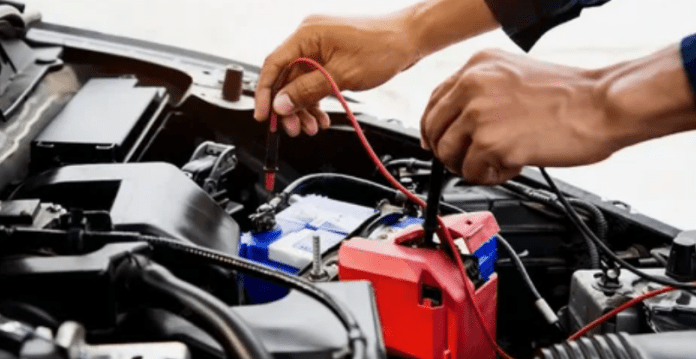The automotive world is constantly evolving, and one crucial aspect of this evolution is the diversity in car battery technologies. Car batteries are the unsung heroes that power our vehicles, providing the necessary energy to start the engine and keep various electrical components running smoothly. In this comprehensive guide, we will delve into the different types of car batteries available in the market today, shedding light on their unique features, advantages, and applications.
Conventional Lead-Acid Batteries:
Overview:
The conventional lead-acid battery has been a staple in the automotive industry for decades. These batteries are known for their reliability, affordability, and widespread availability. They consist of lead plates submerged in a mixture of water and sulfuric acid, generating electricity through a chemical reaction.
Application and Advantages:
Conventional lead-acid batteries are commonly found in traditional internal combustion engine vehicles. They are well-suited for providing the high current required to start the engine. However, they may not be the most energy-efficient option and are prone to sulfation, a process where lead sulfate crystals accumulate on the plates, reducing performance over time.
Absorbent Glass Mat (AGM) Batteries:
Overview:
AGM batteries represent a significant advancement in battery technology. These batteries feature a glass mat separator that holds the electrolyte solution, providing a more stable environment for chemical reactions. This design enhances the battery’s performance and lifespan.
Application and Advantages:
AGM batteries are versatile and find applications in various vehicles, including luxury cars and high-performance vehicles. They are also commonly used in start-stop systems and hybrid vehicles due to their ability to handle frequent charge and discharge cycles. AGM batteries are maintenance-free, offer better energy density, and are less prone to sulfation compared to conventional lead-acid batteries.
Gel Cell Batteries:
Overview:
Gel cell batteries are another type of sealed lead-acid battery, distinguished by the use of a gelified electrolyte. The gel substance immobilizes the electrolyte, providing a spill-proof and vibration-resistant design.
Application and Advantages:
Gel cell batteries are ideal for applications where a maintenance-free and leak-resistant solution is crucial. They are commonly used in motorcycles, recreational vehicles (RVs), and off-road vehicles. The gel electrolyte also prevents acid stratification, enhancing the battery’s performance and lifespan.
Lithium-Ion Batteries:
Overview:
Lithium-ion (Li-ion) batteries have gained prominence in recent years, primarily due to their high energy density, lightweight design, and the ability to hold a charge for an extended period.
Application and Advantages:
While lithium-ion batteries are most commonly associated with electric vehicles (EVs) and hybrid cars, they are also used in conventional vehicles, especially those with start-stop systems. Li-ion batteries provide more power with less weight, contributing to improved fuel efficiency. Their ability to handle deep discharges and rapid charging makes them a preferred choice for modern automotive applications.
Nickel-Metal Hydride (NiMH) Batteries:
Overview:
NiMH batteries are a type of rechargeable battery that utilizes a nickel oxide cathode and a metal hydride anode. They are known for their relatively high energy density and environmental friendliness.
Application and Advantages:
NiMH batteries are commonly used in hybrid vehicles, serving as the power source for the electric motor. They offer a good balance between energy density, cost, and environmental impact. Some hybrid vehicles, such as the Toyota Prius, rely on NiMH batteries for their hybrid powertrains.
Cash for Cars Gympie: Recycling and Disposal of Car Batteries:
While exploring the different types of car batteries, it’s crucial to highlight the responsible disposal of these power sources when they reach the end of their life cycle. Companies like Cash for Cars Gympie(scrap car removal) play a vital role in the recycling and disposal of old car batteries. These services ensure that batteries are handled in an environmentally friendly manner, preventing harmful chemicals from contaminating the soil and water.
Environmental Impact: Car batteries contain hazardous materials such as lead and sulfuric acid, which can have detrimental effects on the environment if not disposed of properly. Cash for Cars Gympie employs eco-friendly practices, recycling the components of old batteries to minimize their environmental impact.
Recycling Process: When you choose cash for cars sydney(unwanted car removal) to dispose of your old car battery, you contribute to a sustainable recycling process. The batteries are carefully dismantled, and the valuable components such as lead and plastics are separated for recycling. This not only reduces the demand for raw materials but also minimizes the environmental footprint associated with manufacturing new batteries.
Cash for Cars Gympie: Encouraging Responsible Car Ownership: By actively participating in programs like Cash for Cars Gympie , car owners not only receive compensation for their old batteries but also contribute to a cleaner and greener environment. It’s a win-win situation where individuals can declutter their spaces, earn some extra cash, and promote responsible car ownership.
Conclusion:
In the ever-evolving landscape of automotive technology, car batteries play a crucial role in powering our vehicles. Understanding the different types of car batteries available allows car owners to make informed decisions based on their vehicle’s needs and their environmental values. As we embrace advancements in battery technology, it’s equally important to consider the responsible disposal of old batteries. Choosing services like Cash for Cars Gympie ensures that your old car batteries are recycled in an environmentally friendly manner, contributing to a sustainable and cleaner future for automotive enthusiasts and the planet alike.
